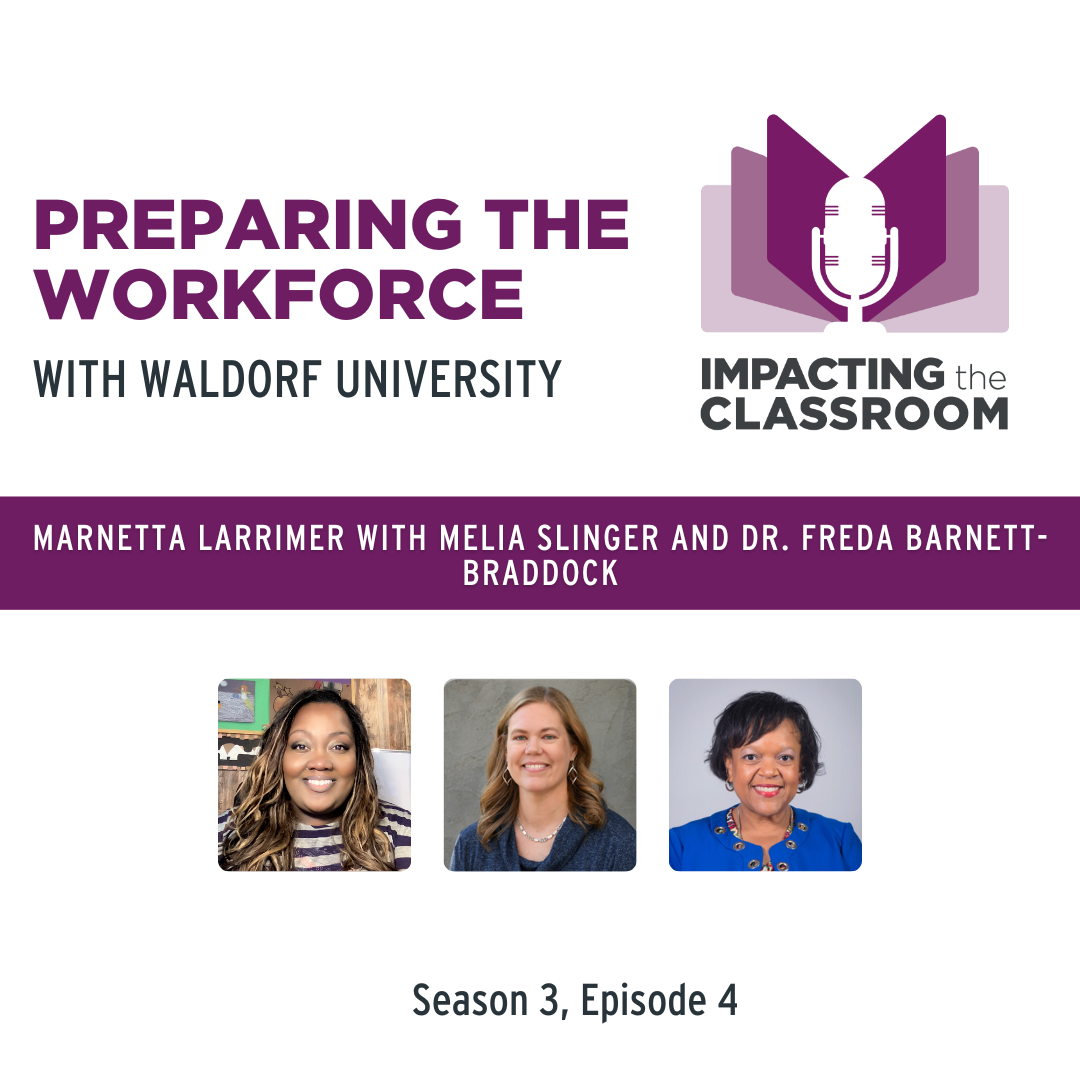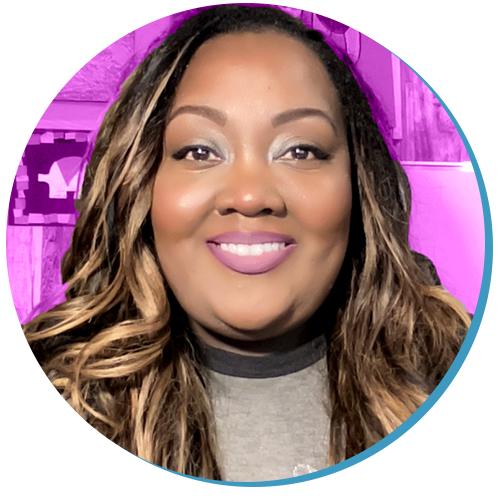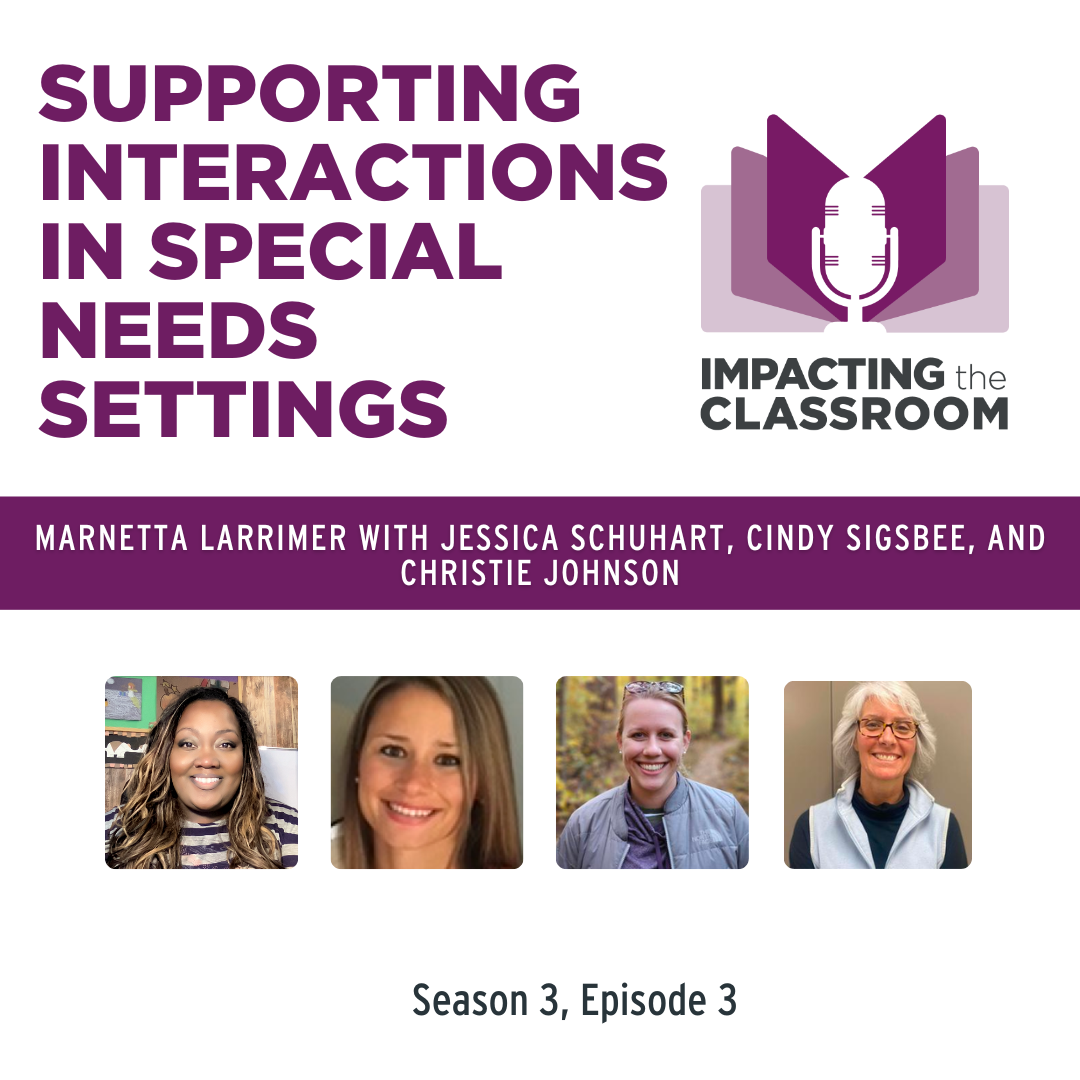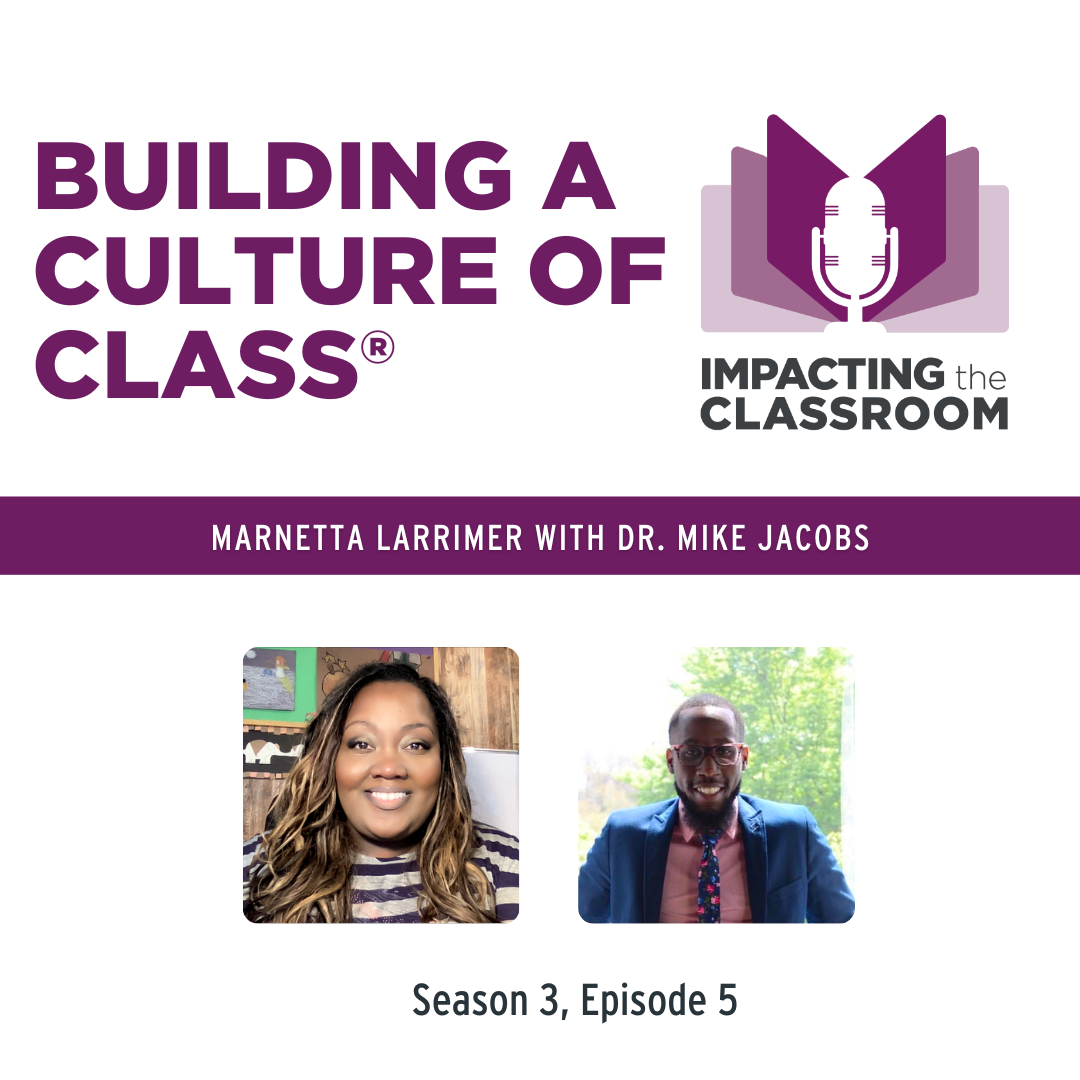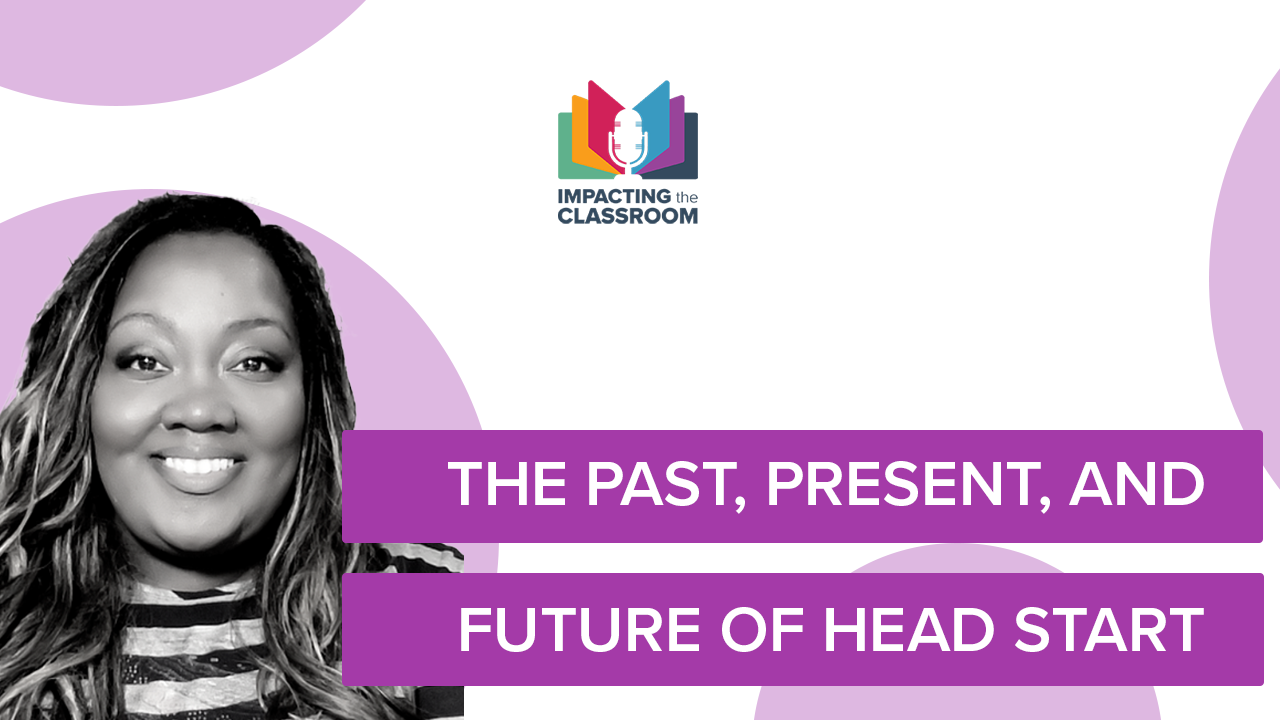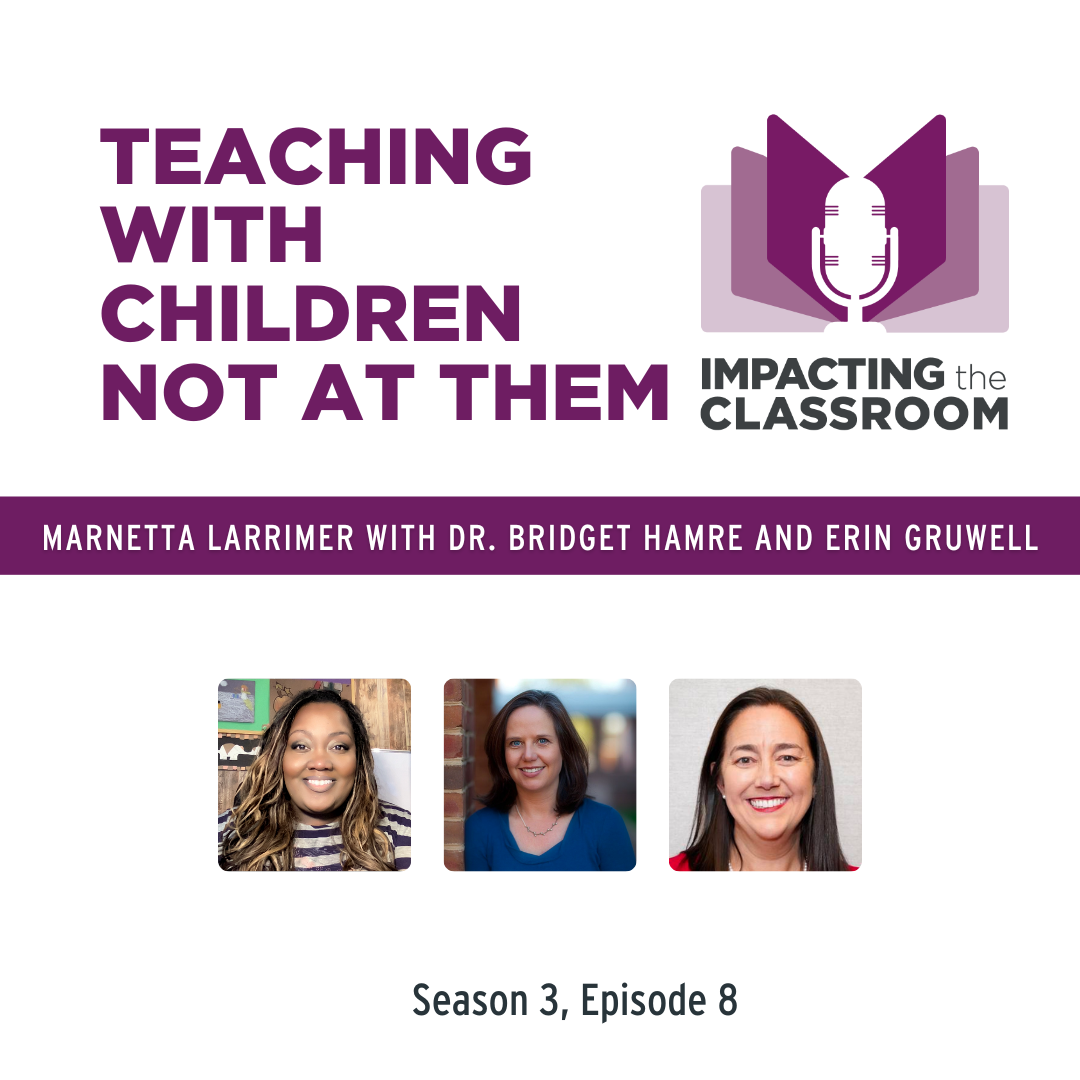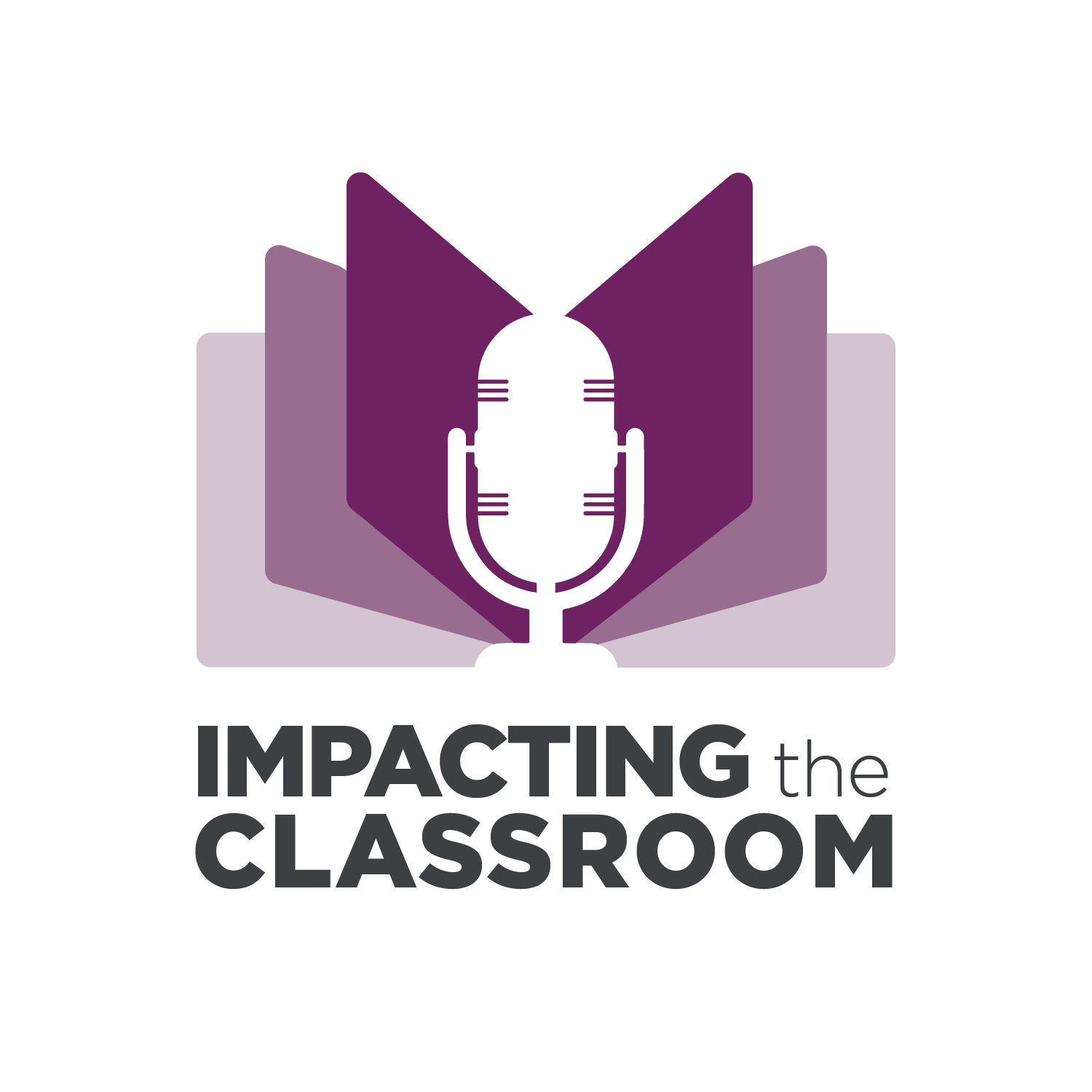Episode Transcript
Marnetta: Hello, and welcome to Impacting the Classroom, the podcast that talks about big topics that have an even bigger impact in early education. I'm your host, Marnetta Larrimer.
Before I jump into today's conversation, I wanted to give a shout out to our sister podcast, Teaching with CLASS, which just launched their fourth season. Monica Pujol-Nassif, my friend with a beautiful soul, sits down with school leaders and educators to talk about the strategies they're using to improve interactions. Check it out. Let's get to our episode.
What's impacting the classroom? We're continuing our conversations about the challenges facing the workforce, specifically early childhood leaders struggling to fully staff their programs. For many, finding qualified, trained educators gets more difficult as careers offer higher wages.
Today, we're joined by faculty from Waldorf University's Education Department. Please help me welcome Melia Slinger, who's the ECE Program Director at Waldorf University and Dr. Freda Barnett-Braddock, who's the Program Director over Graduate Education. Welcome, ladies.
Freda: Thank you.
Melia: Thanks.
Marnetta: Melia, could you tell us a little bit about yourself before we dive into our topic today?
Melia: Sure. My name is Melia Slinger. I have been with Waldorf University for maybe 3–4 years. I graduated from Moorpark College with an elementary education, which is in Waverly, Iowa. I taught in a charter school for two years, which is a combined classroom, then moved to teach title one reading for elementary students, and since then found my husband. We now live on a farm in Iowa and raise turkeys, crops, corn, and soybeans.
On the side, we have two kids—Tanner who's five, and Haley who's two. I get the joy of working with creating the Early Childhood Associate Program at Waldorf online and working with those students, as well as working with some student teachers with Iowa State University and still try to keep my kids alive, so I try.
Marnetta: I love how you said your kids were on the side. That has me tickled and I think I'm going to borrow that. Dr. B, tell us a little bit about yourself.
Freda: My name is Dr. Freda Barnett-Braddock. I have been an educator since 1999. A very long time, it seems. It dates me. I have experience in K-12 Community College.
At the university level, I absolutely love helping students reach their goals. I've started as a classroom teacher, a counselor. I've worked with workforce development. I've also helped design curriculum for various college courses. I've got a pretty varied background in education.
Personal-wise, I have a 20-year-old son who's going to be going into college this fall. His heart and soul is in acting, so he is an actor. If anybody out there needs a tall, six foot chocolate person to play a role, reach out. I know a guy. He has my heart. I try to support him and everything he does, and that spills over into helping my students.
My students who call me Dr. B like coming to me and not only getting advice on educational matters, but we get a good rapport going to the level that they'd like to share, personal matters sometimes, asking advice on how to handle different things. I have a background in psychology as well as curriculum instruction, administration, and different levels as far as graduate education because I am the program director of Graduate Education at Waldorf.
I absolutely love working there. It's a small, close-knit educational environment. I've been with Waldorf since 2018. Although I work in the online environment, we really get a feel for our students and get to interact with them. It's just so rewarding to see them at the beginning of their program to the end and how much growth they end up accomplishing. I'm excited to be here today and talk with you all about all things education.
Marnetta: I love how you just dropped that thing about your son. I feel like I need to tell the audience. She said, for acting, not for anything else.
I love how you were talking about how you've built this relationship with your students. It exceeds just the work. It goes into this more personal, I-care-about-you type of thing. You're in the right place for that kind of relationship building. That's what we do here. That's our whole mission. I love how that connects to just who we are as an organization here at Teachstone, so thank you.
Freda: Everything we do should, in my opinion, be about connections. This is from my psychology background. You never know what someone is going through and what they're dealing with. We all come to the table with varied experiences. We are the sum of our lives, things that have happened in our past.
It's so critically important to remember that when you're working with students because we don't know what it has taken them just to get the courage to pick up that textbook, to try to read the assignment, to try to go after their dream. That's maybe a first gen student and have never seen someone achieve a certain level of academic success. They're forging a path that I like to try to help encourage them because I may be the only cheerleader that they have on their team. I like to keep that in mind every day as I work with them.
Marnetta: I think that's a great segue into my first question. Both of you have been in the field for a good amount of time. What have you seen as a change in that workforce? I want to hear how, what you just said, is impacted by that as well.
Melia: I can go first since I have the younger and then we work our way up. I think one of the biggest things that I have seen in a lot of it happened through the pandemic as well. There's a lot of education that is missing, and there are lots of pieces that we have to pick up after as educators.
Parents did the best they could with the kids at home, teaching them, working, and still thriving as a family. We're out of it now and back into a routine. I see a lot of burnout more with the teachers and dealing with some of the parents than anything else.
In our area, I'm more in the Midwest area. We really struggle with finding educators. I just saw on my social media page. It's where I used to teach actually. The title when we're reading there, the graduating class, they had nobody graduating to go into the education field. That made my heart hurt.
I really want to help these students become teachers and educators for my kids, your kids, your grandkids, and things like that, but parents are hard to deal with and so are some of the students. Some of them don't know the consequences and the behaviors. A lot of these teachers that are giving up early are because they're just tired of working with that. Trying to prepare college students or second career people in early education, elementary education, or master's degree, trying to prepare them to work with all kinds is difficult.
That's really where I've seen a lot of change in the program. We are always in need of early childhood program directors, daycare facilities, and preschool teachers. They're in high demand all the time. Easy burnout in my opinion.
Freda: I'll just extend on what Professor Slinger mentioned. The pandemic has had far-reaching implications that I think most people even realize still. Lots of studies have been conducted that are slowly peeling back the layers of how much damage the pandemic did to us as a whole in our society. But in particular, there's a lot of research that's being uncovered in what impacts are still being realized in early childhood.
For instance, during the height of the pandemic, many facilities centers had to close down. People had to make hard decisions, lots of parents were sent home. They lost their jobs. Now they're faced with having these children at home and trying to meet needs that they themselves were not prepared to do. It has really caused long-lasting repercussions that I think is going to take us years to even fully realize all of the challenges that are going to still be arising.
Many children, the first years are formative. They're the most important. During this couple of years time block that we really, really were in the throes of the pandemic, many children weren't getting services that they needed. They weren't getting the diagnoses that they would have normally gotten if they were in these structured facilities and getting saved by educators who can recognize different learning disabilities or challenges.
The pandemic revealed lots of disproportionality that are felt and seen with various sub marginalized groups, students who are learning English as a second language, students who are of African-American or Hispanic descent, students who are Native American. These groups are slowly being recognized to be behind their counterparts. It's so sad because they were already systemically behind before we even had the pandemic, and the pandemic just exacerbated the issues.
Social-emotional concerns are huge now. That's one area that I'm over. At our university, we have concentration and social-emotional learning. That's a piece that many students didn't get to experience during this pandemic. They didn't have those social interactions that they would have had on a daily basis, playing with other children, learning that, hey, if Susie is having a problem, she's crying, I might need to listen and say, hey, what's wrong? Do you want to see my toy? They didn't have that anymore because we were isolated.
Many parents were, of course, being parents and tried to protect their children, so they were sheltering them and keeping them away from other children. Our people who worked so tirelessly to help our children were frightened, too, especially at the beginning of the pandemic when we didn't know what was causing these deaths and the very, very severe illness. We were told to shelter in place to be away from everybody, to basically cut off that human contact, which is what we need to thrive and make it in our society.
The pandemic has really had a huge impact on education in all levels, from early childhood all the way even through higher ed. Lots of people who were close to considering their exodus—they were getting close to their retirement—said, I'm gone, because it was so stressful. Can you blame them?
As Professor Slinger said, lots of parents had this extra stress. They lost their jobs. They've got to still put food on the table. Now you're telling me I got to teach kids when I don't know how to do that? There are just a plethora of things that the pandemic thrust on our society, revealed about our society, and it still has an impact on our society.
I think the more we can become comfortable with being uncomfortable and talking about some of these tough issues, the more we can start making a change, or at least bringing more awareness so that we can, as she said, start reattracting people to education.
The pay, that's something that's a hot topic. It's the elephant in the room, but I'm going to speak on it. The pay is not what it needs to be. You want me to go in a room and subject myself to possible danger, to possible life-threatening conditions, and then I'm getting paid minimally?
Again, it's just more exacerbation, pouring salt on a wound that was already there. People were tired, they burned out. These are highly stressful positions. We've got to do more to try to make a positive influence in education so that we can see a better spin, not only to help the students and the parents, but our communities as well because again, we said at the beginning of this intro, it's all about connection and community. If we help one group, we're ultimately going to help us all.
Marnetta: Most definitely. You actually said something that I was going to circle around to. I wrote it down, and I had to mark it out. Between your two conversations, we were talking about this burnout and just this extra burden of. I don't think people understand, we have these teachers, who not only are going through challenges in their personal life, but because they have children that are at home who can't go to childcare.
There were minimal hours and being exposed at the same time. They have this extra burden on how do I survive and keep my family safe, take care of them, but also protect these other children and myself in this really up in the air, I don't know what's going to happen kind of space for peanuts. Why would people be running to this?
This pandemic showed that this is a frontline role that has really no benefits and really is just rather dangerous. Teachers were not very cared for during this pandemic, so why would we have people running to this field? Melia, you were mentioning in yours about education missing, the pandemic and that some of this education was missing. What are some of those things that you believe were missing during that time?
Melia: I think Dr. B really hit a big one, and a lot of it is that social interaction. I even see it with just my two-year-old. We had her at the height of the pandemic. As early in her life, it was nope, can't see anybody, can't do anything. Compared to my other one, who's Mr. Social Butterfly. I see that too as I observe student teachers, of just the interaction with one another.
As educators, we are teaching teachers how to teach students, how to share their emotions, how to work together, and how to learn academically as well. When you really are focusing on early education, I think the big one is just that social interaction of one another. But then as you gain into first, second, and third grade, they're missing out. They've missed so much on the reading and the math, where a first grader should be. Their expectations are still kindergarten because they're still trying to pick up the pieces.
I do think that over the last maybe year or two, things have been much better just because everybody's more back into a routine. But for me, personally, I see a lot of social interaction has been one of the biggest things. That is a life skill that they learn. If they learn it young, it will stick with them. You don't have to do as much free teaching then, which is nice for a teacher.
Marnetta: Right. I heard all of the things, but I just heard another layer of challenge. How are we preparing these teachers for this other challenge of these delays? That's a whole nother layer. What I learned in school may no longer apply to this new situation, so how do you set me up for success? That leads me into my next question. How has higher education evolved to support this?
Freda: I'll jump in here. Oh, my goodness. I have always been an advocate of marginalized groups. Again, the pandemic didn't create all of these problems, but it sure pulled back the veil.
Even though (ironically) we had the No Child Left Behind Act, groups that were already being left behind got even further behind during the pandemic. You send kids home to learn virtually. They don't have a computer at home. They don't have internet.
Things that we take as basic, just human necessities, the Internet I work from home. Did I tell you all I've got a 20-year-old that's trying to get into acting?
Marnetta: You did.
Freda: Okay, I digress. I couldn't provide for him if I didn't have internet access because that's how I make my living online. These children, many of them in massive numbers, did not have those luxuries at home. They didn't have those.
As Professor Slinger mentioned, the delays that were already there, the gaps got even wider. What do we in higher ed need to do? Again, I'm always a proponent of sometimes you have to become comfortable with being uncomfortable.
Let's address the elephant in the room. Let's address these children who are not getting or who did not receive all the resources that they needed, they were already behind before the pandemic got here. Now the gap from their other counterparts has widened even more. Their parents were stressed before because if they were living in a deficit living, many of them at or below the poverty level that only got worse when the pandemic came. People are still trying to recover.
Our nation thinks everything is inflation. Whether or not we call it the recession, pending recession, or what have you, you go to the grocery store and see how much a gallon of milk costs or a dozen of eggs. Not only are parents having to face the challenge of doing something with their children, trying the best they could to educate them. Now they've got to feed them, they are home more, the emotional stress. The mental health status of our nation has really, really, really struggled, and it continues to do so.
The isolation, just the lasting impacts that we're still going to be realizing years and years from now from people having to isolate for such a long period of time, having no physical contact with others, those are things that we in higher ed need to keep reinforcing and teaching because when you're in the classroom, you're facing all of those things. If a child is not good at home, he or she cannot begin to focus on two plus two equals four, or this is a circle or this is a square, when their tummies are rumbling because they didn't get enough to eat that morning. They're wondering what's going to happen when they get home that night.
There are so many things that children are faced with that, again, we have to, in higher ed, start not only teaching the written curriculum, but we've got to start addressing many more things in a more real and tangible way that teachers are going to face in the classroom, so they can be armed with knowing how to handle when they see signs of children experiencing additional issues, that we can connect them with resources to help.
In higher ed, again, learning about the various elements of cognitive development and things that children should be doing at certain stages, learning different emotional cues. When some children don't have just basic emotional intelligence to interact within certain situations the way they should be, we need to pick up on those things. More concerted effort must be made to help our future teachers do that because they not only have to take care of these children, we've got to teach them the importance of self care, too.
They've got to learn the balance. That's something I always promote and stress to my team and my professors that I'm over. You've got to have a balance in your own life. You can't just pour into others because eventually, your vessel is going to become empty, and you can't pour from an empty cup.
Again, there's just a gamut of things that we have to be mindful of, but the first step is that self-awareness and knowing we've got to face these tough challenges and work together, going back to your beginning statement, as a community, connections, and trying to start making a positive change.
Melia: I don't know if I have much more to add to that. I know that in the beginning, we were talking. Kids don't have internet access. I know that one of the other stressors is on the teachers' end. I still have lots of colleagues that are still teaching. I have an aunt that taught for years, taught fourth grade, and she gave up because of the pandemic because of technology. That was because she had to learn so much new technology so quickly to implement it with her kids.
It was working as a team, which is great. Don't get me wrong. Technology is wonderful. It is a great tool. There has been a lot to learn from this, too, but it's a struggle too. You lose a lot of good teachers because a lot of these veteran teachers didn't want to. They're like, no, I'm done. I've had enough of this. I just want to teach kids, and I want to teach them. I want to see them be successful in the classroom. I don't need all this added stuff that I have to do.
I know that that was a huge struggle, too. We talked about the kids, we talked about the parents, but there's that struggle with the teachers, too, that you have in the classroom. We talked a little financially, too, on all realms—daycare, early childhood, and those facilities. Yes, we're looking for all of these new people to come in and teach and be part of this, but prices are astronomical just to put them in daycare.
For a week, it's just outrageous. I don't necessarily see it on my end because I have two kids that stay at home, but boy, as a parent and you don't have a job, that is a huge struggle. You have the government that thinks that they need to say, well, you have to have kids that have to read this many words per minute before they can go on to the next grade. You can only do this, and it takes the fun out of teaching, but there is a positive.
I feel like it's all, in a sense, negative as what we're talking about. The kids, that is (I think) ultimately, what we're here for. It's to teach these prospective students how to see the joy, the enlightenment in the kids, seeing them successful, being there for them, and seeing them (in a sense) grow from a seed into a tree kind of thing.
A prospective student, you do it for the kids. I miss that. I miss being in the classroom because I love the kids. I feel like it's all negative, but there's so much positive in education fields
Freda: Oh, yeah. Even to extend from that, again, the elephant in the room, a lot of stressors that have been realized. There definitely are some positives. One thing that has truly been an asset is families. They're a little stronger because they were together. Parents started reading to their children who didn't read to their children in the past.
Melia: Down to eat at the supper table.
Freda: Exactly. The family dynamic changed. It went back a little old school, which was good. I feel as if we need to, as people who are preparing future educators, stress the importance of, again, the family-school connection. It takes a village. The proverb, it takes a village to raise a child.
We need to use this awareness to our benefit when we're teaching future leaders, future teachers, on how to get those parents positively involved. Let's be mindful, let's be real, and face the challenges and discuss those. But like you said, let's not stop there. Let's come up with some solutions. Let's try to help parents see how they can better support their children, how they can be involved in the classroom.
They can come in and be speakers for the classroom, set up some community fairs. Let us see you and what you do as a success so that we can have aspirations to know that we can do those same things one day. Children need to see real life heroes, people that they can aspire to become themselves. They need to see people that look like themselves as well.
Let's, again, integrate some more diversity. That's something that the pandemic is showing because, like you said, not only has there been a huge exodus of teachers who were maybe at their point of retirement, and they didn't want to deal with the technology.
Let's show future teachers how they can embrace technology more and use it for the students because let's face it. The students can do the technology better than we can in those instances. It's only going to get more and more increased. Even somebody like me has to learn how to get outside the box and use technology more.
Making those efforts to connect with the families, connect with the communities, I think the pandemic showed us that sometimes now, we're going to have to be a little more proactive in those areas, but we can do it. It's only going to be for the betterment of our children. The children—no pun intended—are our future, so we have to keep finding ways to overcome all these challenges. But like she said, make lemonade out of those lemons.
Marnetta: In thinking about the children, we talked about the types of training that teachers need now. At the university level, like the higher education level, what are we doing to recruit teachers, people into this field so that they can have access to what we've learned and have the training that we need to provide for them to help them to support our students?
Melia: I think on my end, one of the things that I see that is wonderful, and it didn't often used to be this way, but you can pretty much carry on a full-time job and get a degree at the same time. I have seen that in the courses that I have been teaching. A lot of the introductions that students make, they have a family, then they have sometimes two or three jobs, and they are also taking to get a new degree.
Even myself, I got my master's, and I did it all online. I was teaching full-time and coaching three sports. I see that accessibility as being such a pro to help get those future educators in the classroom, in a daycare facility, or into higher education. That's one of the great things that I have seen on my end if that's what you're looking for.
Freda: That's a game changer, Melia. I agree. Professor Slinger, I agree with you completely. I too finished both my master's specialist and doctoral degrees online. I would not have been able to do that because I couldn't go sit in a typical brick and mortar classroom. I didn't have the time. I was married at the time, raising a child who has special needs.
The online classroom afforded me so many opportunities so that I could still work. I could still take care of home obligations, but also go after my dreams. I love that point that you made, and we do. We see students who are completely in another area, but have not given up on that dream that they have of changing the world by changing one child's life at a time. I think that we can continue to encourage that.
One thing that we can do in higher ed, I as an administrator, what I like to do is talk to people who may be are getting to the level of maybe burnout in the classroom and remind them, hey, you can have an even bigger impact if you become an administrator because you're going to influence the influencers. That was one thing I did when I was teaching high school, when I decided to work on my first master's degree, because I wanted to become a principal. I wanted to not only help students, but I knew if I could change the mindset of teachers, that was going to impact even more students.
Giving those educators who have this vast knowledge but maybe they might be burned out on the day to day grind of a classroom, reminding them, hey, there are other things you can do. You can become a lead teacher, even if you still want to have that type of connection, but you'll get more into some other areas as well. You might want to look into a degree that has a master's that you focus on the curriculum side. You might want to focus on leadership.
You might want to look into a degree, again, that teaches you about social emotional learning because you can impact and influence not only your students, but your colleagues, your admin, your community members. Because once you realize the importance of what's going on in other's lives ultimately going to impact your own, you'll be more wise and open to seeing how you can positively change someone else's life when you're seeing little cues and things that are going on. Just reminding people that there's always hope. It's never too late to take a new path in life, to change your trajectory, or to change somebody else's life.
Marnetta: Melia talked about more accessibility and that avenue of online learning, so being able to live this life while creating another one in the time you have. In what other ways has higher education evolved to support the accessibility of learning?
Melia: I have to go into a little more detail.
Marnetta: Let's think about costs because I can have access to an education, but is it accessible to me? Maybe I don't want to have to work three jobs to be able to go to school. How has higher education evolved to support the challenges that the pandemic brought as far as this financial crisis that we're living in?
Melia: I think I probably don't know all of the details on that end. I feel like I'm focused more on the content in some of the courses. But I also do know, a lot of schools in the Midwest here, sometimes will say, hey, we will pay for half of your education. If you want to continue and you want to get your special ed degree, or you want to get your early childhood endorsement, we have money set aside that we can help you with. That helps, too.
There are grants that are available. As far as the cost of a course, that would not be in my area. I don't even want to even say that I even know about it because I would be not even close to it. I always joke that I was always the reading teacher, not the math teacher, so numbers and myself never got along very well.
I do know more on my end. Here in the Midwest, I know that there are several districts that will say, hey, we need you to get another endorsement for your special ed. We'll forgive half of your bill, we'll pay for one class, or things like that. That's on my side of the loop there.
Freda: You're completely right. There are numerous scholarships, grants, and school districts. Especially these high needs school districts, they've got the funds to send teachers to school to go back. You can get alternate emergency certifications.
Where there's a will, there's a way. You may have to do your research. You do your homework to see how to get connected to those resources, but there's no excuse for someone not to go to school. Like she said, some districts are begging people. Hey, come here, we'll put you on a one- or two-year emergency contract. We'll let you go back to school, get what you need, because we need teachers.
There are definitely resources out there. The best thing to do is just start getting on the Internet, doing a little Google search, pick up the phone, start making some contact calls, and a person that wants to do it, they will definitely find it because there's too much money out here, because we do have such a shortage that someone can get connected with the resources that they need. They just have to put in a little effort to start making some calls, shooting out some emails, and start letting their desires be known.
Marnetta: Yeah, that's what I wanted to get to, some hope. You're talking about the positives. Not only do we have space, but there are ways for you to do this and not hurt. Look for those resources, get in the field and get this certification paid for.
Freda: Especially in particular areas like special education, some people really have a passion for that, but it is a high burnout area, high turnover. Any areas that have lots of turnover and burnout usually have lots of money dedicated to get more people back into the area. That's a good tip for you.
If you're thinking about, I wonder which area I might want to go into, look into the area that's got the highest need. Different states have different needs, so just do a lot of research and see what your state, what your district, where you live, what they are really looking for, and market yourself.
I've always been bold enough to say, hey, all they can say is no, so go to a district. Let them know, this is my background. I have a passion for doing this. What can you do to assist me? Can you recommend the path I take? You'll be surprised how many people want to help you if you'll just speak up and let your desires be known.
Marnetta: Wonderful. One more question. Where do you see the future of the teacher prep program is going?
Melia: I am always a positive thinker. I see it on the up and up, but it's getting the word out. I feel like you talk to one person, and hopefully they can talk to three more people, and then you are paying it forward in a sense from there. I have seen it in the associates program that we've put together at Waldorf. We've been doing it now for a couple of years, and it was maybe 1–2 students. Now we're about 4–5.
That's not a huge gap, but we're gaining. Bringing the joy back into teaching and showing people that this is a fun occupation and career choice to have that you get to play with kids all day long. There's so much joy in that. Trying to encourage that in them, I only see it increasing. That's my hope.
I think something will eventually, I'm hoping, will flip over, and they'll be like, hey, we need to pay teachers a lot more because they get three months off in the summer—some do—but they really don't. They're always working.
Let's pay them more. They're teaching our future. They're teaching our kids how to be a lifelong learner. I pray and I hope that that turns over sometime soon. Maybe with my kids, I don't know.
Freda: I want to echo your positivity. I feel like even though we did mention a few of the negative aspects of Covid, I think one of the positives is that some parents who didn't have to deal with their children, now know what it's like to deal with their children eight hours a day. They do realize how underpaid educators are.
I do believe that there are going to continue to be positive strides made in teacher pay because if we didn't have teachers, we wouldn't have anybody else. There would be no NBA and NFL players because they wouldn't be able to get through school if there weren't any teachers to teach them. There wouldn't be doctors and lawyers because you got to have a teacher.
When you want to say a central worker, the teacher is one of the most essential workers at the top of the pyramid, for sure. I feel like in higher ed, we're going to continue to make strides and show how we can change lives through education, one student at a time. We're going to continue to have these tough conversations at times so that we can begin to close achievement gaps with groups who may not be getting the services and support that they need.
We're going to continue to seek ways to continuously improve so that we can have a positive impact on these children because they are our future. Our country won't survive if we don't do something to make sure we're supporting these children. That goes from early childhood all the way through higher ed.
I believe enough people love what they do. Enough people have a love for others and a gift to be able to think outside the box. We're going to continue to see just astronomical changes that are going to help grow and make this field even better than it already was.
Marnetta: I have nothing else to say after that because that was a perfect wrap up to our conversation today. Thank you so much for sharing your stories with us. You can find today's episode and transcript on our website, teachstone.com/podcast. As always, behind great leading and teaching are powerful interactions. Let's build that culture together. You guys were amazing. Thank you so much.
Freda: Thanks for having us.
Melia: Yeah, thanks.
